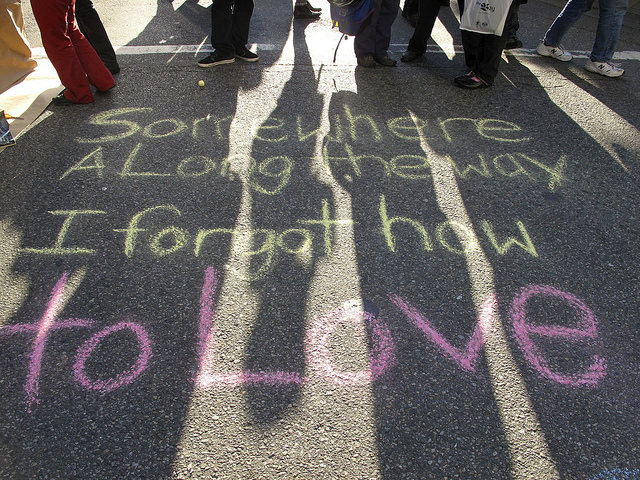A common trope has emerged on radio talk shows, online media and the daily papers as Occupy Vancouver struggles against an increasingly hostile city hall, opportunistic electoral candidates and the justice system: the movement has alienated itself from the majority of Vancouverites even though that majority claims to support the stated goals of the global occupation. For anyone who has visited the art gallery lawns and is familiar with the struggles and demands voiced by the occupiers, this accusation should be infuriating.
The genesis of the global Occupy movement has come from a middle class recently conscious that the comfortable lifestyle they were promised and to which they felt entitled is simply not forthcoming. In many places, notably New York and Oakland (although even in Oakland complexities ensue), this realization has resulted in moving displays of solidarity. After all, the 99 per cent necessarily includes those from all incomes, pitted only against an oppressive ruling class. As once echoed across the Paris Commune of 1871, “Our interests are the same. What I wish for, you wish it too.”
Occupy Vancouver also heralded such compelling unity and promise; but over the last few days, something has changed — and not only because of an relentless assault by right-wing media. Bill Tieleman, for example, who originally supported the Vancouver protests, now calls it a “sad parody” of Occupy Wall Street.
What’s striking is the demands he calls “absurd” are the same demands Downtown Eastside activists have been making for years: legalize drug use and sex work, improve housing, reform policing and acknowledge aboriginal self-determination. And this is to say nothing of the several modest demands that shouldn’t strike even the most conservative Canadian as radical, let alone “absurd”: provide a living wage, tax the rich and stop the wars. Apparently desire for change earns only a derisive sneer from the former B.C. NDP strategist.
The explanation for this turnabout is simple: those who continue to occupy the art gallery lawn are activists, community organizers and volunteers who have been plying their trade in the Downtown Eastside for years. DTES residents and their allies have been marginalized, alienated, villified, and victimized by the city and its citizens as a matter of course for decades. They gained purchase on mainstream discourse through the 99 per cent, who supported them so long as the political investment was minimal. The tenters disproportionately shoulder the injustice perpetuated by the one per cent, and now they find themselves in a familiar position: abandoned by a well-meaning majority who finds their poverty distasteful. As Derrick O’Keefe recently tweeted: “Perfect solution from the 1% of a city drunk on real estate bubble hubris: Evict the homeless.”
It wasn’t the protesters who made a farce of the mayoral election, in which both leading opposing candidates first made a wedge issue out of the occupiers and then duly agreed with each other to evict them. Mayor Robertson and Councillor Anton seized upon the overdose death of a young woman in a neighbourhood in which more than 60 such deaths happen each year. Then the 25 per cent or so of eligible voters who actually vote in civic elections wring their hands about hearing a “debate” on homelessness while the homeless themselves clamour to be heard. Pope could write no better satire.
The tinny outrage and counterfeit alienation of those who support the Occupy movement except has manifested itself in farcical and perfunctory objections. Flammables must be removed for public safety while the toxic mould from the demolished Pantages theatre wafts down Hastings Street. Ugly tarps must be taken down so that they do not distract from the view of the brutalist $550-million BC Place roof. Empty tents must be dismantled while hundreds of vacant units festoon the Olympic Village. It is as if those former occupation firebrands now objecting are relieved to find a publicly acceptable reason to abandon the protest, irrespective of the actual logic of their complaint. With the unsettling anxiety aroused by the possibility of definitive social change now dissolved, the middle classes of Vancouver can return to the warm embrace of ideology.
On October 15, when Occupy Vancouver kicked off, one of the speakers enjoined everyone in the assembly to hug their neighbour. Love is better than anger, after all, and the communal feeling was electric. Today, the occupation still harbours this sentiment, this belief. The sense of community, of food, housing, medicine and well-being for all has never left the camp, despite the contempt shown them by the city, the police, the fire department and the media. And as the city tightens its grip (which naturally has only the occupation’s safety at heart), perhaps this defiant display of solidarity is where those still invested in change can find hope: love, camaraderie, fraternity — the true workhorses of revolution — abide and endure in Vancouver, like they always have.



